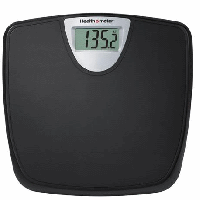
You nailed a phone interview for a new job. But once you meet your prospective boss in person, things go downhill quickly. Either your meeting is cut short or you’re abruptly told the position has been filled.
The scenario is an all-too-familiar one for a number of overweight people who have experienced weight-based discrimination in the workforce. While many victims of the bias have suspected their appearance has been hurting their careers, two new studies analyzing decades’ worth of research show just how pervasive the problem is.
This is not just something on the margins,” says Mark Roehling, Michigan State University associate professor of human resources management and author of an upcoming meta-analysis of 30 studies examining weight-based discrimination in controlled employment settings. “At the obesity level and higher, we have every reason to believe [discrimination] is having a very significant impact on people.”
Weight-based discrimination consistently affects every aspect of employment, from hiring to firing, promotions, pay allocation, career counseling and discipline, according to Roehling’s work.
The bias appears to be most prominent during the hiring process, when an employer knows a potential employee the least and therefore is most likely to be influenced by stereotypes (such as fat people are lazy), says Cort Rudolph, a Wayne State University researcher. Rudolph presented his meta-analysis of 25 studies on the topic at a conference of the Society for Industrial and Organizational Psychology in April.
The bulk of research has also shown that the bias tends to be felt most by overweight white women, who are battling both the glass ceiling and the stigma of being heavy. A 2004 study by Cornell University Associate Professor John Cawley found that when the average white woman puts on an additional 64 pounds, her wages drop 9%. (Some studies have shown that overweight white women are evaluated more harshly than overweight African American women and that African Americans tend to be more accepting of large body types, according to Roehling.)
Read the Rest of the Story here
